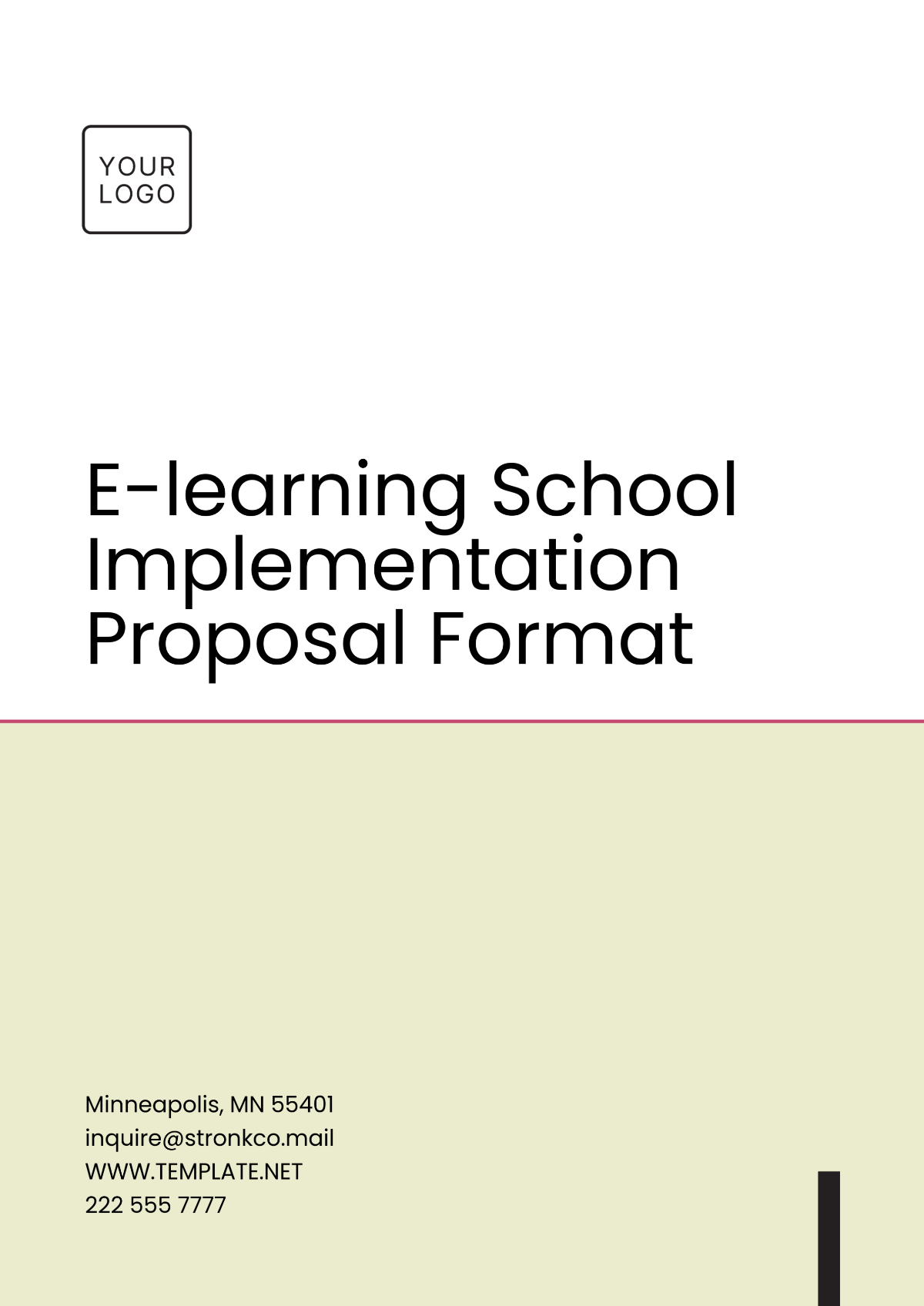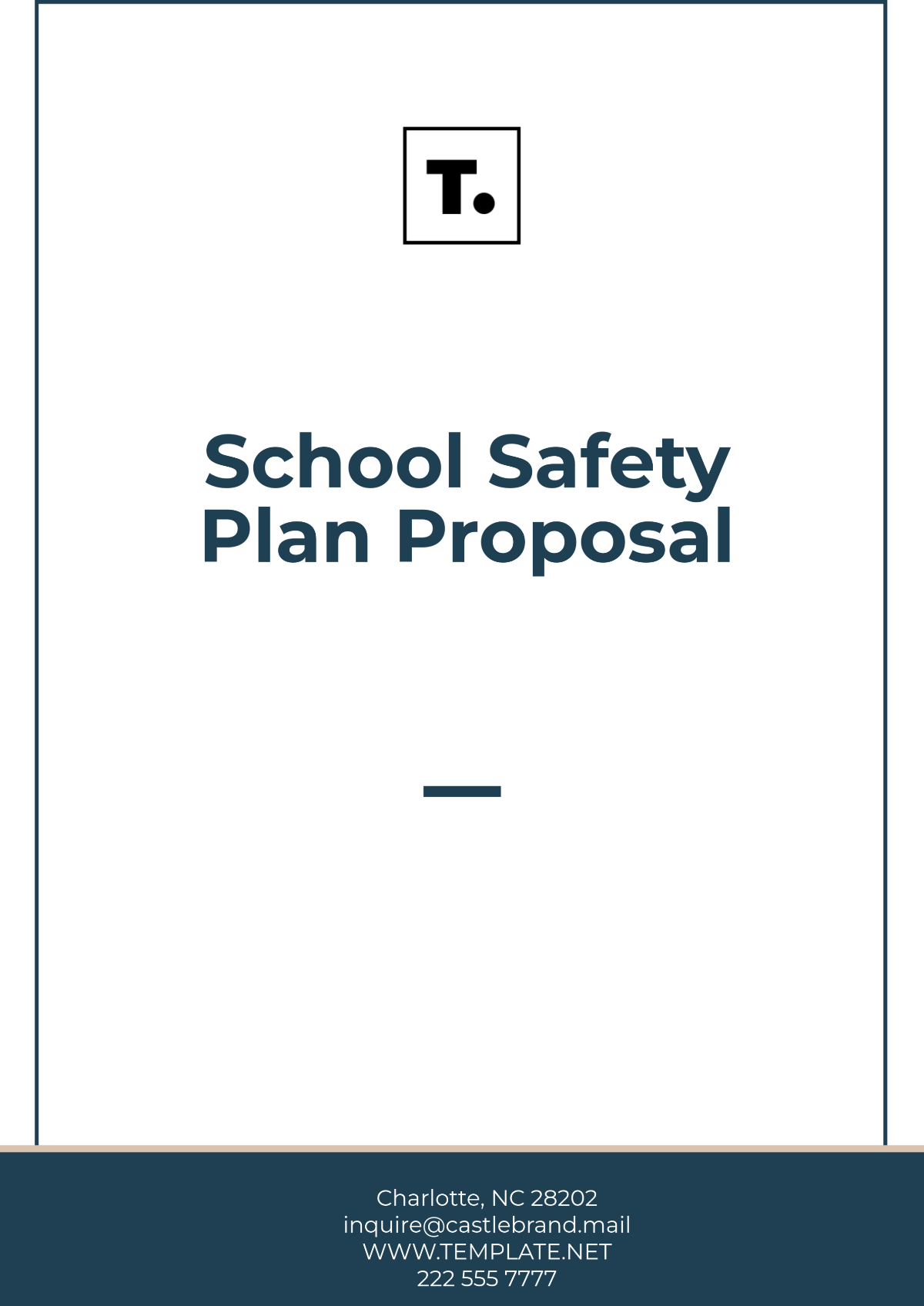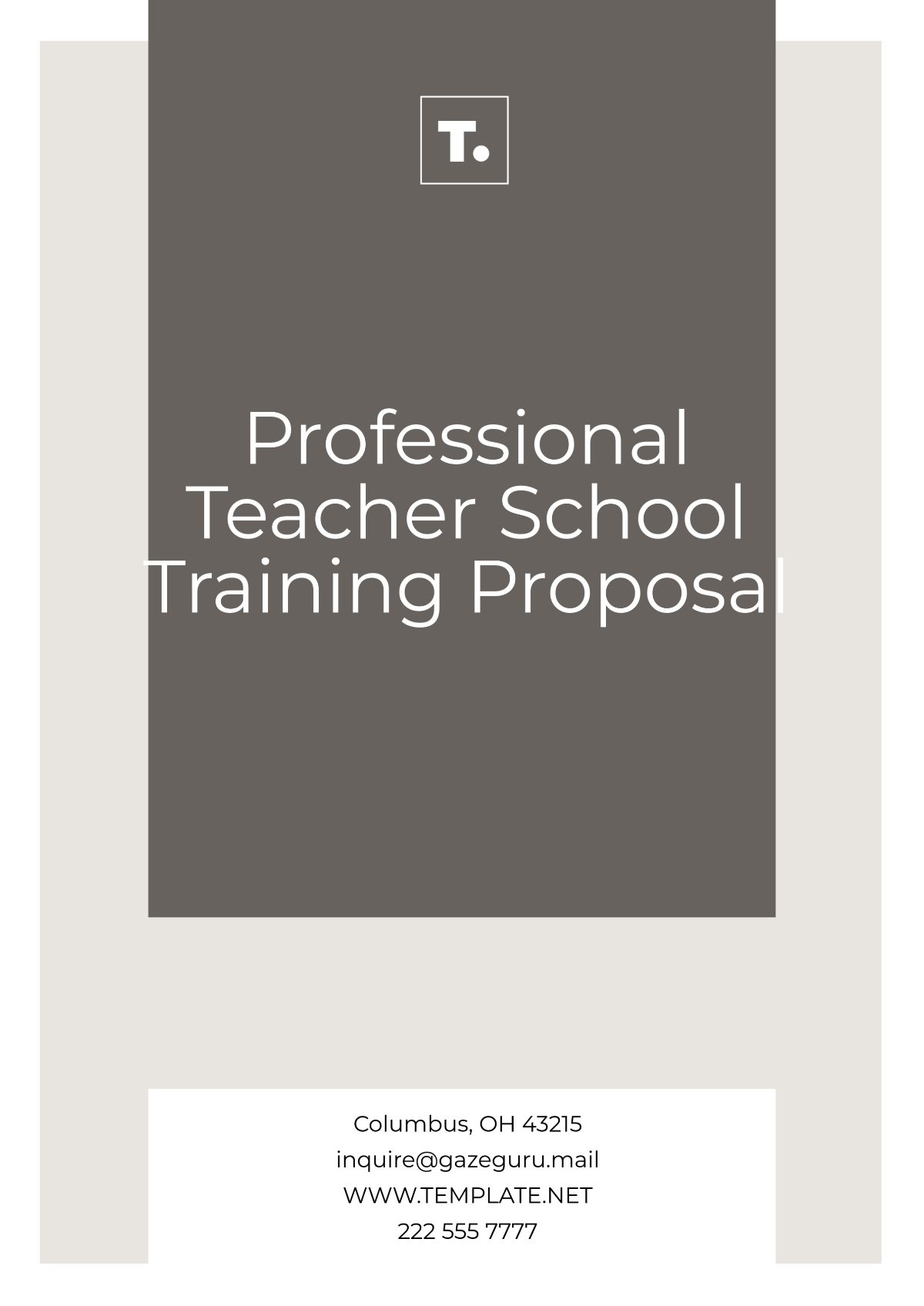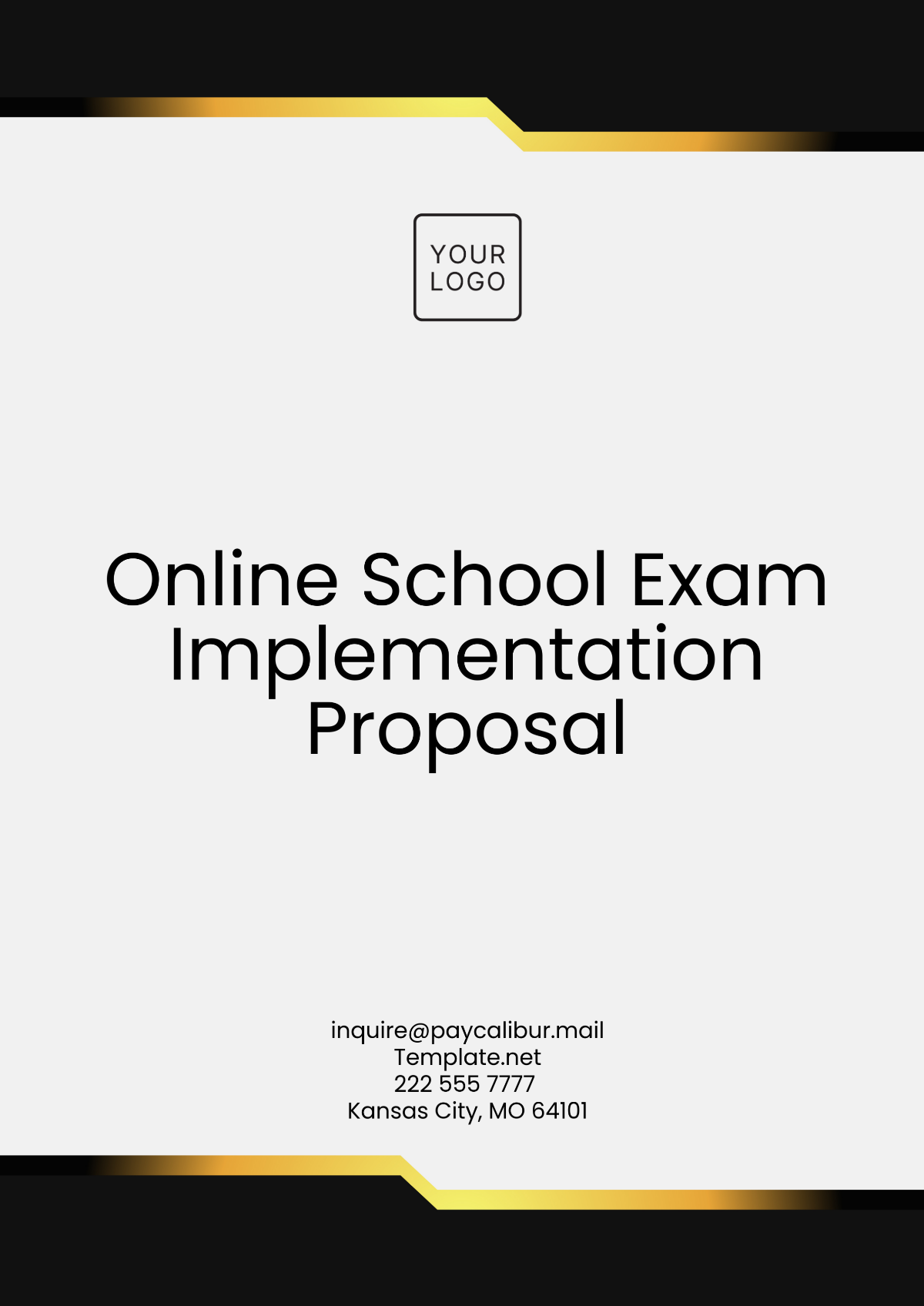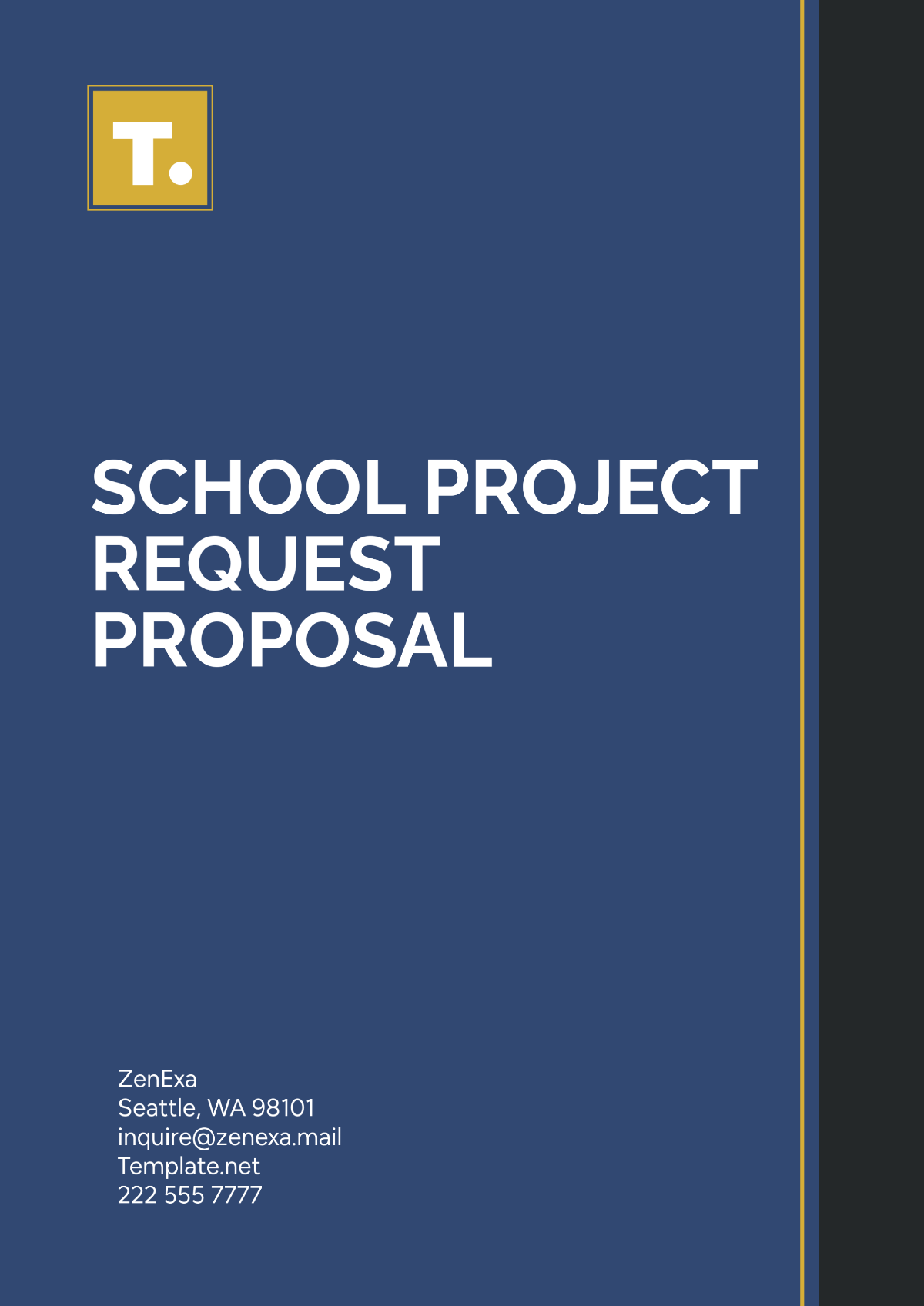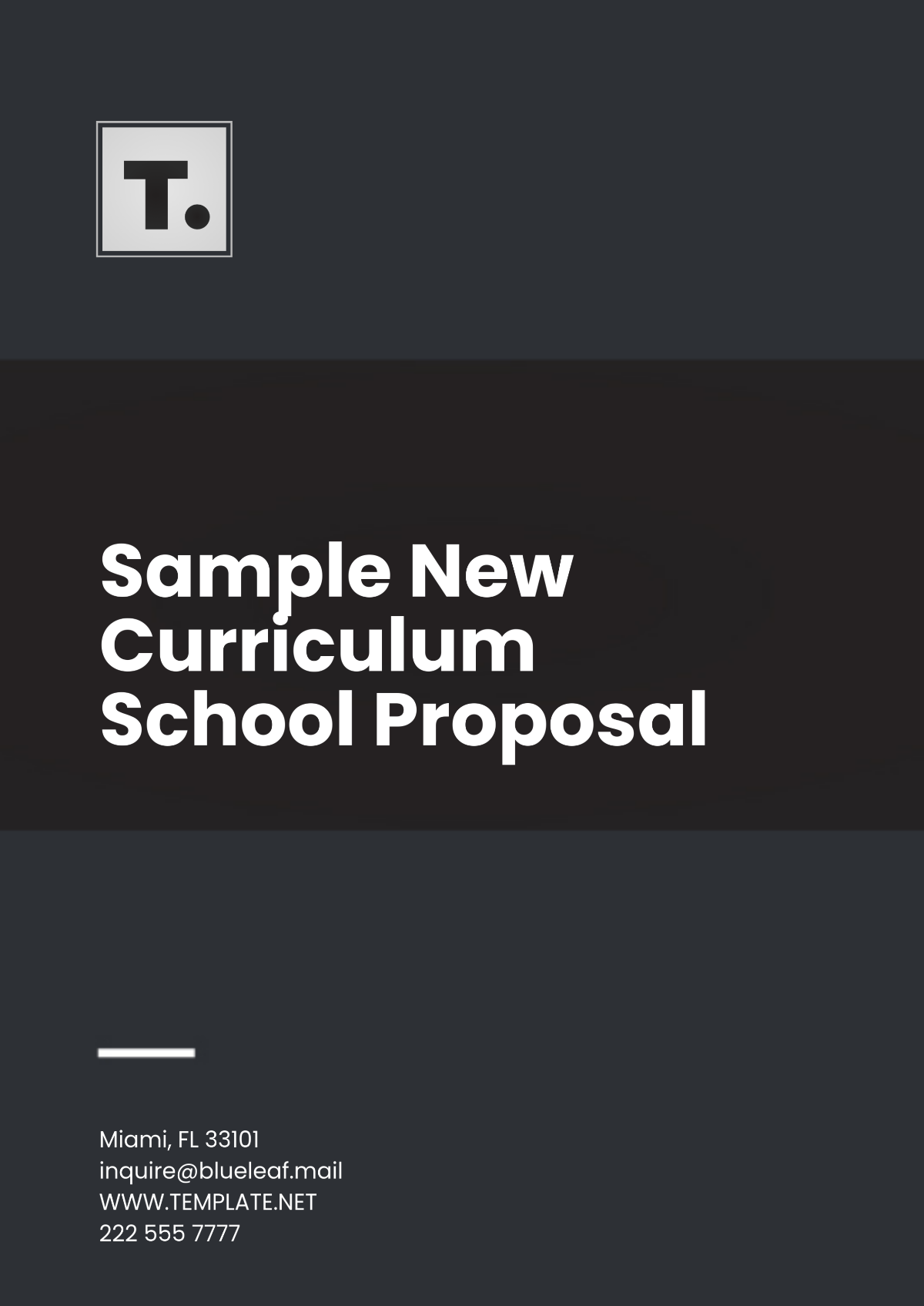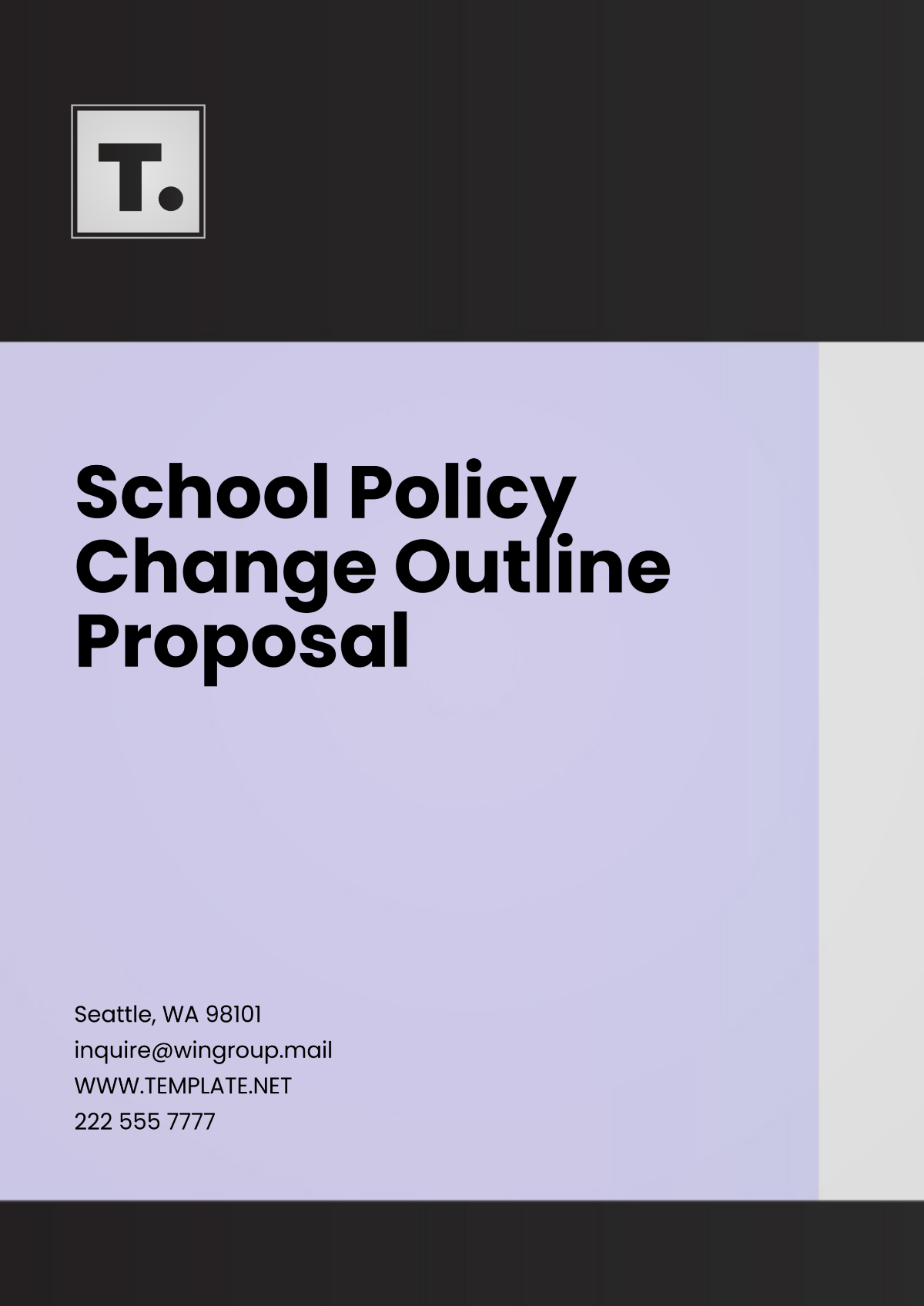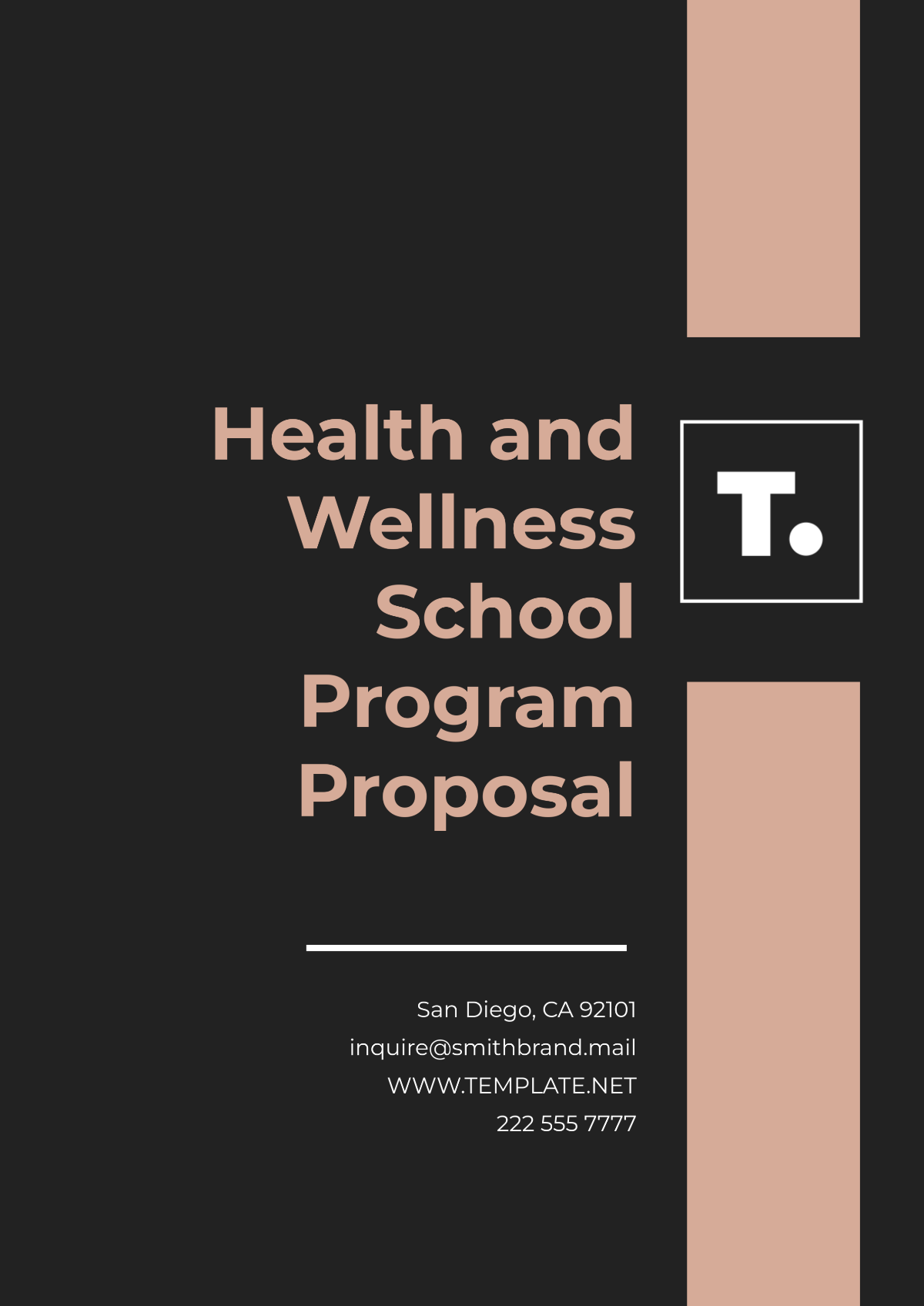School Internship Proposal
I. Overview
A. Purpose of the Proposal
The purpose of this proposal is to outline the structure, objectives, and benefits of the [Your Company Name] School Internship Program. It aims to detail the roles and responsibilities of all stakeholders, the application process, and the performance evaluation criteria. By providing a comprehensive framework, this proposal seeks to ensure a successful and enriching internship experience for both students and partner organizations.
B. Purpose of the Internship Program
The School Internship Program aims to bridge the gap between academic learning and real-world experience. By offering students practical exposure in their chosen fields, we seek to enhance their academic knowledge with hands-on experience, thereby preparing them for future professional endeavors. This program is designed to provide students with the opportunity to apply theoretical concepts learned in the classroom to actual work scenarios, fostering both personal and professional growth.
C. Benefits to Students and Partner Organizations
For students, the internship program offers numerous benefits including the development of professional skills, exposure to industry standards, and the opportunity to build a professional network. By working alongside experienced professionals, students can gain insights into their field of interest, enhance their resumes, and potentially secure future employment opportunities.
Partner organizations also stand to benefit significantly from this collaboration. By hosting interns, companies gain access to fresh talent and new perspectives, which can drive innovation and efficiency. Additionally, internships serve as a cost-effective recruitment strategy, allowing organizations to evaluate potential employees' performance before making long-term hiring decisions.
II. Internship Program Structure
A. Duration and Schedule
The School Internship Program is structured to accommodate the academic calendar. Typically, internships last for a period of 8 to 12 weeks, coinciding with the summer break or semester break periods. The schedule is flexible to meet the needs of both students and partner organizations, with options for full-time and part-time placements.
Internship Type | Duration | Schedule |
|---|---|---|
Summer Internship | 8-12 weeks | Full-time, Part-time available |
Semester Internship | 12-16 weeks | Part-time during the school year |
B. Internship Types and Areas of Focus
The program offers a variety of internship types across different industries and sectors. Students can choose from internships in fields such as business, engineering, information technology, healthcare, education, and more. Each internship is tailored to provide a comprehensive learning experience in the selected area of focus, ensuring that students gain relevant skills and knowledge.
C. Eligibility and Selection Criteria
To be eligible for the School Internship Program, students must meet certain academic and behavioral criteria. Applicants should have completed at least one year of their undergraduate studies and maintain a minimum GPA as specified by their academic institution. Additionally, students must demonstrate a strong interest in their chosen field and possess the requisite skills and competencies required for the internship.
III. Roles and Responsibilities
A. Student Intern Responsibilities
Interns are expected to commit to their roles with professionalism and dedication. They should actively participate in assigned tasks, seek guidance when necessary, and adhere to the policies and procedures of the host organization. Additionally, interns should maintain regular communication with their supervisors, submit periodic progress reports, and complete any required evaluations or assessments.
B. School Responsibilities
[Your Company Name] is committed to supporting students throughout their internship experience. The school will provide pre-internship orientation sessions to prepare students for their roles, offer ongoing support and guidance, and facilitate communication between students and host organizations. Additionally, the school will oversee the evaluation process to ensure that learning objectives are met.
C. Partner Organization Responsibilities
Partner organizations play a crucial role in the success of the internship program. They are responsible for providing meaningful work assignments that align with the student's academic and career goals. Organizations should designate a supervisor or mentor to guide and evaluate the intern's performance, provide necessary training and resources, and offer feedback to help the intern improve.
D. Supervisor and Mentor Roles
Supervisors and mentors are instrumental in the professional development of interns. They should provide clear expectations, regular feedback, and constructive criticism. Mentors should also encourage interns to take on challenging tasks, facilitate learning opportunities, and help them integrate into the organizational culture. Regular check-ins and performance evaluations are essential to monitor progress and address any issues that may arise.
IV. Application Process
A. Application Requirements
Students interested in participating in the internship must submit a comprehensive application package. This package typically includes a resume, cover letter, academic transcripts, and letters of recommendation. The cover letter should detail the student's interest in the internship, relevant skills, and career aspirations. Academic transcripts should reflect the student's academic performance, while letters of recommendation should provide insights into the student's character, work ethic, and potential.
B. Submission Deadlines
The application process is divided into several phases, each with specific deadlines. It is crucial for students to adhere to these deadlines to ensure their applications are considered. The application timeline is as follows:
Application Phase | Deadline |
|---|---|
Application Submission | March 1st |
Initial Screening | March 15th |
Interviews | April 1st - April 15th |
Final Selection | April 30th |
C. Selection Process and Timeline
The selection process is designed to identify the most qualified candidates for the internship program. After the initial application screening, shortlisted candidates will be invited for interviews with potential host organizations. The interview process allows both students and organizations to assess compatibility and discuss internship expectations. Final selections are made based on the interviews and overall application strength.
V. Training and Orientation
A. Pre-Internship Orientation
Before starting their internships, students will participate in a comprehensive orientation program. This orientation will cover essential topics such as workplace etiquette, professional communication, time management, and specific expectations of the internship. The goal is to equip students with the knowledge and skills needed to succeed in their roles and integrate smoothly into the host organization.
B. Ongoing Training and Support
Throughout the internship, the partner company will provide ongoing training and support to ensure students have a positive and productive experience. This includes regular check-ins, workshops, and access to resources such as online learning modules and professional development tools. The school will also facilitate peer networking opportunities, allowing interns to share experiences and learn from one another.
C. Access to Resources and Tools
Interns will have access to a range of resources and tools to support their professional development. This includes access to the school's library, online databases, and career counseling services. Additionally, host organizations are encouraged to provide interns with the necessary tools and resources to perform their tasks effectively, such as software, equipment, and training materials.
VI. Performance Evaluation
A. Evaluation Criteria
The performance of student interns will be evaluated based on a set of well-defined criteria. These criteria are designed to assess the intern's proficiency, progress, and overall contribution to the host organization. Key evaluation parameters include:
Work Quality: The accuracy, completeness, and attention to detail demonstrated in the intern's work.
Work Ethic: The intern's punctuality, reliability, and commitment to their tasks and responsibilities.
Skill Development: The intern's ability to acquire new skills, adapt to the work environment, and apply theoretical knowledge to practical situations.
Communication: The effectiveness of the intern's communication skills, both verbal and written, and their ability to work collaboratively within a team.
Professionalism: The intern's adherence to workplace norms, etiquette, and overall professional demeanor.
Evaluation Criteria | Description |
|---|---|
Work Quality | Accuracy, completeness, and attention to detail |
Work Ethic | Punctuality, reliability, and commitment |
Skill Development | Ability to acquire and apply new skills |
Communication | Effectiveness in verbal and written communication |
Professionalism | Adherence to workplace norms and professional demeanor |
B. Feedback Mechanisms
To ensure continuous improvement and development, interns will receive regular feedback from their supervisors and mentors. Feedback mechanisms include:
Mid-Term Reviews: Formal evaluations are conducted halfway through the internship to assess progress and identify areas for improvement.
Informal Check-Ins: Regular, informal meetings between the intern and their supervisor to discuss ongoing tasks, challenges, and achievements.
Final Evaluation: A comprehensive review conducted at the end of the internship, summarizing the intern's performance and providing constructive feedback for future growth.
C. Mid-Term and Final Assessments
The mid-term and final assessments are critical components of the performance evaluation process. These assessments provide a structured approach to evaluating the intern's contributions and development throughout the internship.
Mid-Term Assessment
The mid-term assessment involves a formal review of the intern's performance at the halfway point of the internship. This review includes:
Self-Evaluation: Interns complete a self-assessment, reflecting on their achievements, challenges, and areas for improvement.
Supervisor Evaluation: Supervisors provide detailed feedback on the intern's performance, highlighting strengths and areas needing development.
Development Plan: Based on the assessments, a development plan is created to address any identified gaps and set goals for the remainder of the internship.
Final Assessment
The final assessment is conducted at the conclusion of the internship and includes:
Comprehensive Review: A thorough evaluation of the intern's overall performance, including an analysis of the progress made since the mid-term assessment.
Exit Interview: A discussion between the intern and their supervisor to review the final evaluation, gather feedback on the internship experience, and provide career guidance.
Certification: Successful interns receive a certificate of completion, recognizing their contributions and achievements during the internship.
VII. Compensation and Benefits
A. Stipends and Scholarships
The school is committed to providing fair compensation to student interns. Interns may receive stipends or scholarships based on the nature of the internship and the availability of funding. Stipends are designed to cover basic living expenses and ensure that financial constraints do not hinder participation in the program.
Compensation Type | Description |
|---|---|
Stipends | Financial support to cover basic living expenses |
Scholarships | Merit-based awards to support academic and career goals |
B. Academic Credits
Interns participating in the School Internship Program may be eligible to earn academic credits for their work. The eligibility and process for earning credits will be coordinated with the intern's academic institution. This ensures that the internship experience is recognized as an integral part of the student's academic journey.
C. Additional Perks and Benefits
In addition to stipends and academic credits, interns may receive various perks and benefits, including:
Professional Development Workshops: Access to workshops and seminars aimed at enhancing professional skills.
Networking Opportunities: Invitations to industry events, networking sessions, and professional gatherings.
Career Services Support: Access to career counseling, resume-building workshops, and job placement assistance.
Health and Wellness Programs: Participation in health and wellness programs offered by the host organization.
VIII. Legal and Safety Considerations
A. Internship Agreements
To formalize the internship arrangement this requires the execution of internship agreements between the student, the school, and the host organization. These agreements outline the terms and conditions of the internship, including roles and responsibilities, compensation, confidentiality, and intellectual property rights.
Agreement Component | Description |
|---|---|
Roles and Responsibilities | A detailed description of the expectations from all parties |
Compensation | Terms of stipend, scholarship, or other financial support |
Confidentiality | Provisions to protect sensitive information |
Intellectual Property | Clauses regarding ownership and use of work produced |
B. Liability and Insurance
The school collaborates with partner organizations to provide appropriate liability and insurance coverage for interns. This includes:
General Liability Insurance: Coverage for any damages or injuries that may occur during the internship.
Professional Liability Insurance: Protection against claims arising from professional activities performed by the intern.
Worker's Compensation Insurance: Coverage for medical expenses and lost wages in case of work-related injuries or illnesses.
C. Workplace Safety and Conduct
Maintaining a safe and respectful work environment is essential for a successful internship experience. This ensures that all partner organizations adhere to workplace safety standards and conduct guidelines. This includes:
Safety Training: Providing interns with necessary safety training related to their specific work environment.
Conduct Policies: Enforcing policies on workplace behavior, harassment, and discrimination to create a respectful and inclusive environment.
Emergency Procedures: Clear guidelines on emergency procedures and contact information in case of any incidents.
IX. Conclusion
A. Expected Outcomes
The School Internship Program is designed to deliver significant benefits for all stakeholders involved. For students, the expected outcomes include enhanced professional skills, valuable industry experience, and improved employability. For partner organizations, the program aims to provide access to talented and motivated individuals who can contribute to the organization's goals and bring fresh perspectives.
B. Long-Term Goals
The long-term goals of the School Internship Program are to establish a sustainable pipeline of skilled professionals, foster strong partnerships with industry leaders, and contribute to the overall development of the students' careers. By continuously improving and expanding the program, [Your Company Name] aims to create a lasting impact on the academic and professional landscape.






